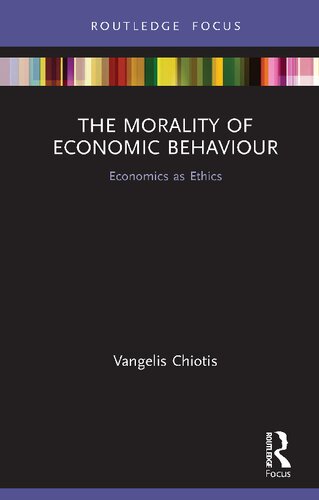

Most ebook files are in PDF format, so you can easily read them using various software such as Foxit Reader or directly on the Google Chrome browser.
Some ebook files are released by publishers in other formats such as .awz, .mobi, .epub, .fb2, etc. You may need to install specific software to read these formats on mobile/PC, such as Calibre.
Please read the tutorial at this link. https://ebooknice.com/page/post?id=faq
We offer FREE conversion to the popular formats you request; however, this may take some time. Therefore, right after payment, please email us, and we will try to provide the service as quickly as possible.
For some exceptional file formats or broken links (if any), please refrain from opening any disputes. Instead, email us first, and we will try to assist within a maximum of 6 hours.
EbookNice Team

Status:
Available5.0
9 reviewsThe links between self-interest and morality have been examined in moral philosophy since Plato. Economics is a mostly value-free discipline, having lost its original ethical dimension as described by Adam Smith. Examining moral philosophy through the framework provided by economics offers new insights into both disciplines and the discussion on the origins and nature of morality.
The Morality of Economic Behaviour: Economics as Ethics argues that moral behaviour does not need to be exogenously encouraged or enforced because morality is a side effect of interactions between self-interested agents. The argument relies on two important parameters: behaviour in a social environment and the effects of intertemporal choice on rational behaviour. Considering social structures and repeated interactions on rational maximisation allows an argument for the morality of economic behaviour. Amoral agents interacting within society can reach moral outcomes. Thus, economics becomes a synthesis of moral and rational choice theory bypassing the problems of ethics in economic behaviour whilst promoting moral behaviour and ethical outcomes. This approach sheds new light on practical issues such as economic policy, business ethics and social responsibility.
This book is of interest primarily to students of politics, economics and philosophy but will also appeal to anyone who is interested in morality and ethics, and their relationship with self-interest.